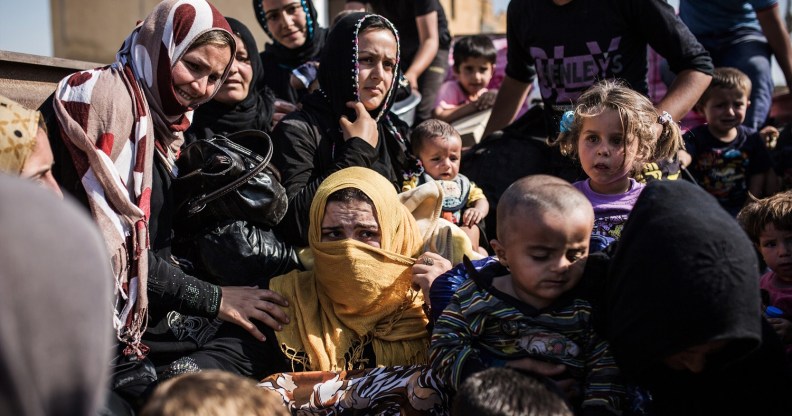Syrian paper claims gays are ‘infesting society’ through uprising

A popular privately owned daily newspaper has published an article alleging gays and lesbians are ‘prospering’ due to the Syrian uprising and are held responsible for social problems.
‘A loose wrist, a noticeable way of using the fingers, sitting and crossing the legs together in a feminine manner and an interest in gossip and whispers are among homosexuals’ main distinctive features.’ This was the introduction to an article about gays in Syria published in local newspaper Baladna on 21 February.
The article states the uprising ‘gave homosexuals a freedom they would’ve never dreamt of’ and that since March 2011, the number of Syrian members in a popular online dating site has increased from 20,000 to 100,000 members.
The website is not mentioned explicitly but it is presumed to be ManJam, a popular gay dating site. In reality, the number of members on ManJam whose location on the site is stated as within Syria does not exceed 10,000.
The Baladna article also says that before the uprising, gays looking for meets or cruising were a priority for the Mukhabarat – the Syrian ‘secret’ intelligence service. But it claims now they have bigger problems at their hands they’ve left gays alone, thus facilitating their ‘proliferation’.
It also claims that the refugee migration from areas affected by fighting, mainly the governorates of Homs, Hamah and Idlib, to the metropolitan cities of Damascus and Aleppo has facilitated LGBT people’s meeting and increased their gatherings.
The three page article goes on to describe the slang and terms used by the members of the underground gay community to communicate with each other and includes an interview with two male prostitutes describing how their business has flourished since the beginning of the revolt last year.
One of the prostitutes, called ‘Dandan’ in the article, reportedly agreed to speak with the newspaper for an undisclosed amount of money only as an act of vengeance after another member of his group ‘betrayed’ him. The other, only mentioned by his initials, claims that he sources European male models to ‘perform’ for the wealthy men of the Persian Gulf countries.
It also tells the story of a Syrian dentist who was raped while studying for his degree in Russia.
It claims he said: ‘One night, I was staying with a friend of mine and we got drunk. He and his friends, five of them, locked the door and took turns raping me. At first, I was filled with a destructive, humiliating feeling but the pleasure was overwhelming and I suddenly recognized what I was missing. I then started sleeping with any guy I can get!’
More interviews follow, this time with three lesbians. They also describe the slang they use, different from that used by gay men, according to Baladna, and tell their stories.
The article said one of them is married, the other was raped, and the third turned lesbian because she feared her father would kill her – in a so called ‘honor killing’ – if he found out she was having premarital sex with a man.
The article goes on to discuss the views of the two main religions in Syria, Islam and Christianity, on the subject of homosexuality and concludes that both condemn it in the strongest terms. It then reviews the legal status of homosexuality in Syria, which is currently punishable by one to three years of imprisonment and talks to a lawyer who says that he prefers treating gays as people with psychiatric disorders that need medical help rather than criminals that ought to be jailed.
The article also includes a survey that states that 26 out of the 50 gay men that were interviewed were raped as children while 10 lived in a household dominated by the mother or with an absent father and 14 stated that they were born females in male bodies. As for the lesbians, the survey included 23 women out of which 18 ‘learned’ lesbianism at school and five were raped as children and were disgusted with men ever since.
Finally, it concludes with a notary public who works in the Palace of Justice stating that marriage rates have fallen to a third over the past year and blaming the increasing easiness of meeting gays for the problem, along with the deteriorating economic circumstances.
The last sentence in the article describes homosexuals as ‘social germs’ who ‘have infested our society and took the opportunity to strike once the first signs of weakness appeared’.
The private-owned newspaper, whose issue dated 23 November 2011 was withdrawn from markets for featuring an article criticizing the ruling Baath Party, is one of the most popular daily publications in Syria with over 50,000 daily copies in circulation.

